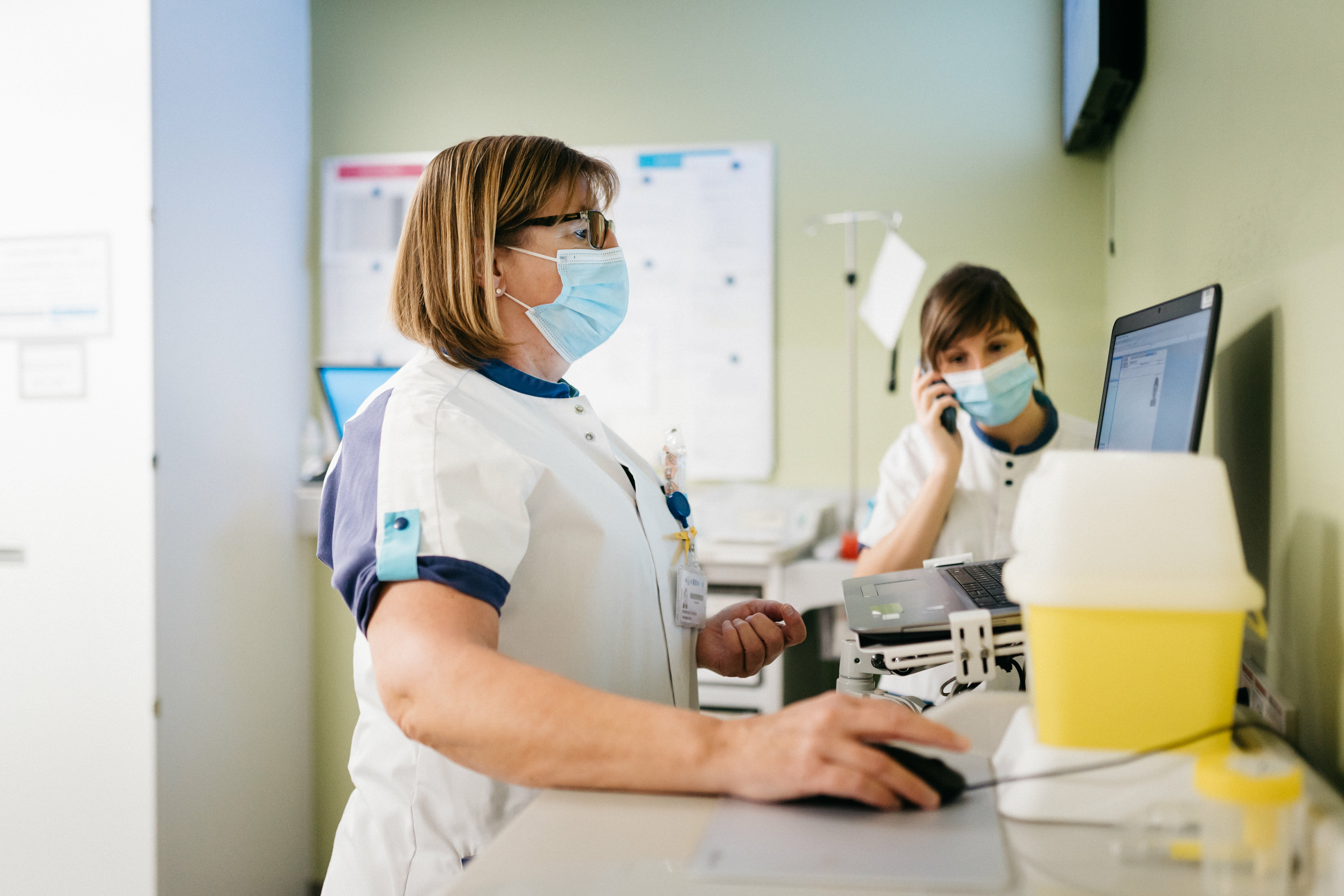
Patient
What is a clinical study?
What is a clinical study?In the video below, you will discover what exactly a clinical trial is.
Advantages of a clinical study
Advantages of a clinical study- As certain clinical trials give participating patients access to the latest treatments even before they are available on the market, patients get access to the latest scientific advances. This sometimes provides a new chance for recovery or an increase in quality of life. During a clinical study, you are monitored very closely in order to detect every effect of the tested treatment.
- By participating in a clinical trial, you are showing solidarity with the generations of today and tomorrow. You can take pride in this, and you are certainly appreciated for this. Your participation can contribute to better care in the future.
- Participating in a clinical trial is an important act of solidarity at a global level becausethe knowledge and experience gained during these trials is shared at international level. This is how medicine evolves beyond our country's borders.
Source: www.klinischeproeven.be
Disadvantages of a clinical study
Disadvantages of a clinical study- Since a clinical study is meant to answer a question regarding a new treatment, there is no guarantee yet that this medication or method will be effective.
- There is, depending on the type of clinical study, no guarantee that you will receive the studied medication or that you will have the studied procedure performed. You might as well get a placebo or receive current standard care. You will not experience the benefits during or after the clinical trial.
- Since the treatment is experimental, the participants may also experience unexpected side effects. Even before starting the study, measures are taken to prevent and remedy any known possible risks. Clinical studies are monitored closely in order to detect and prevent these side effects as quickly as possible. Every participant receives specific medical follow-up.
- In comparison with a standard treatment, participation in a clinical study can involve a more intensive care trajectory. There may be extra consultations, tests and treatments, which can require extra time and consideration on your part. It is the responsibility of the researcher to inform you, as the patient, of these details.
Your rights and obligations as a participant
Your rights and obligations as a participantAs a participant/participant, you have the right to:
- participate voluntarily, without pressure or negative consequences if you choose not to participate
- exit the study at any time
- free treatment with the medication under study and usually on free medical examinations as part of the clinical trial (if they are study interventions)
- reimbursement of any transport costs
- all necessary information to be able to give consent to every procedure
- clear and understandable answers to your questions
- be informed immediately when there is new information that could impact the decision to participate, even after the study has already started
- have care administered in a safe manner
- have your information handled confidentially and anonymously
- insurance that is paid by the leading researcher for the study
As a participant/participant, you commit yourself to:
- provide truthful and complete information on:
- your health condition
- medical history
- any treatments you received
- comply with the clinical study protocol and to work with the medical staff;
- attend visits and accompanying evaluations, which can be quite intensive.
Source: www.klinischeproeven.be
You are insured against risk
According to the law of 7 May 2004 regarding experiments involving human subjects, the organiser (also referred to as the principle researcher) of the clinical study is obliged to provide ‘no fault’ insurance. Any damage that the participants (directly or indirectly) experience due to the clinical study is always reimbursed by this insurance, even if the responsible physician has not committed any error.
Source: www.klinischeproeven.be
'Informed consent'
'Informed consent'
Before you decide whether to participate in a clinical study, you will receive all relevant information about the course of the study, the advantages, the disadvantages, the risks and the alternatives of the study in an understandable format.
Written consent
To participate effectively, you will provide written consent through the 'informed consent' process.
The ‘informed consent' is the consent document that contains all the details about the study, such as:
- our goal
- the duration
- the required procedures
- the risks and potential benefits
- the contact persons
Your participation is voluntary
There will absolutely not be any pressure whatsoever to convince you to participate. If a physician asks you to participate in a study, you may refuse, without any further explanation. You don't have to give a reason for that either. Refusal does not affect further treatment or your relationship with your physician. It is important that your participation is completely voluntary and that you are given the necessary time to inform yourself, discuss your participation with your family, GP...
You can stop whenever you wish
Even after having agreed to participate, you can always decide to stop participating in the study or to refuse certain treatments that are part of the study. This may make you unfit to continue participating in the study.
When the researcher stops the study
The researcher can also decide that you may no longer participate in the study. This could be, for example, due to a change in the treatment regimen or after the occurrence of certain side effects such as an allergy.
Something wrong or unclear on this page? Report it.



